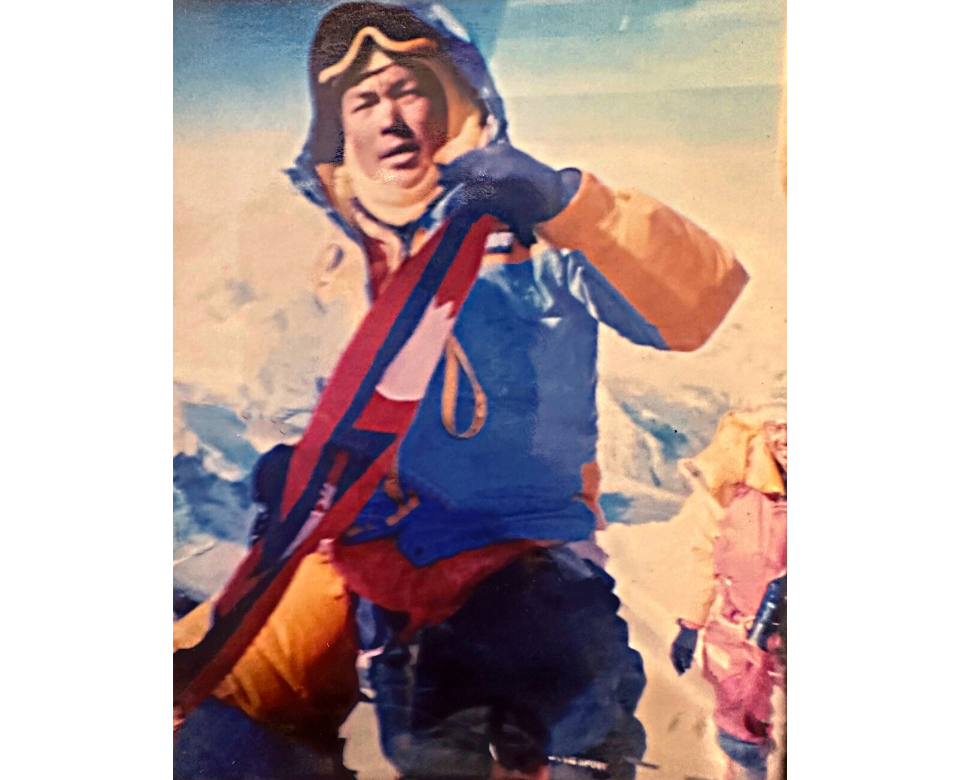When Ngawang Wangchhu Sherpa was only 13 years old, he began hiking to the Everest Base Camp, which sits roughly 3,000 feet higher than Colorado’s tallest mountain.
As a member of Nepal’s Sherpa community, the young teenager’s job was to carry the luggage of mountaineers who had traveled to the mountain from around the world. Sherpas are, after all, known as the “super humans” of the Himalayas — genetic studies show their bodies contain a gene that regulates hemoglobin production and allows for more efficient use of oxygen.
“I realized very early in my climbing career that my clients were experiencing difficulties while hiking to the base camp and needed additional help and rest while hiking,” Sherpa said. “I offered to carry my clients’ backpacks when they felt a little fatigued, and asked them if they were doing alright and if they wanted to rest up for a bit if they couldn't go any further.”
When Sherpa began leading clients up Mount Everest and other peaks, he was risking his life with every expedition. He oversaw crews of five to ten people, fixed ropes, cooked meals, set up tents and did everything he could to ensure mountaineers’ safety.
When he was in his early 20s, Sherpa learned the importance of investing in quality mountain gear and equipment. He was climbing Mount Dhaulagiri in Nepal — the seventh-highest mountain in the world — when a guide from another expedition group was caught in an avalanche.
“I offered to help, and while rescuing him, my big toe on my right foot got damaged due to frostbite, and I lost a part of it as a result,” Sherpa said. “I would have avoided any injuries if I had the proper gear.”
By 2002, Sherpa had summited Mount Everest four times. The following year, he was nearing the summit with his clients when he found out that both his parents died.
“I was in a dilemma on whether to return back home or finish my job,” he said. “So, ultimately I had to make the decision with a heavy heart, and decided to make it to the summit and finish my job as it was my responsibility to my clients.”
He then returned to organize his parents’ funeral and take care of his brothers and sisters, who were still young.
Sherpa says he has fond memories of growing up in his village, Cheplung, which is near the Everest Base Camp. But when he met his wife and had children of his own, he retired from guiding expeditions, and moved to the U.S.
“I chose to leave my homeland and move to Colorado, because I was looking for opportunities for me and my family,” he explained. “Nepal is a developing country, which lacks infrastructure, and I wanted my kids to have the best opportunity for their future. Also, climbing mountains is not as easy when you get old, and a lot of risks are involved in this job. So I couldn't afford to risk my life, as I want to support my family as much as I can.”
Sherpa and his family purchased a house in Longmont several years ago, and he occasionally hosts and organizes trekking groups to Mount Everest’s base camps.
He and other Sherpas are working to highlight their community and share its accomplishments, and those efforts have paid off — more than a dozen local Sherpa guides were recognized earlier this year by Gov. Jared Polis, who proclaimed Jan. 5 Sherpa Appreciation Day.
“Sherpas are known world-wide for their excellence in mountaineering and their ability to share their skill and culture with aspiring climbers from across the globe,” the governor’s proclamation read. “Sherpas not only assist and guide international travelers safely through the Himalayas but are rooted in a respect for the mountains and commitment to their protection and conservation.”
The proclamation listed the following Sherpas in Colorado, and the number of times each has summited Mount Everest:
- Kame Sherpa - 16 times, including 3 times in 9 days
- Pemba Gyalje Sherpa - 6 times, and was named 2009 National Geographic’s Adventurer of the Year
- Chhiring Dorje Sherpa - became the second Nepali to summit Mount Everest without oxygen
- Tashi Sherpa - 10 times
- Panuru Sherpa - 16 times
- Mingma Tenzing Sherpa - 4 times
- Nima Karma Sherpa - 10 times
- Ngawang Wangchhu Sherpa - 6 times
- Tenzi Sherpa - 8 times
- Mingma Ongel Sherpa - 5 times
- Ngawang Pasang Sherpa - 3 times
- Phurba Namgyal Sherpa - 2 times
- DaNuru Sherpa - 16 times
- Pasang Tenjing Sherpa - 9 times
- Tashi Tshering Sherpa - 5 times
- Pem Dorji and Moni Mulepati Sherpa became the first couple to exchange vows at the summit after climbing the mountain
“We are proud of all Sherpas who call Colorado home and value the skill and experience they bring to our mountainous state,” the proclamation read.



